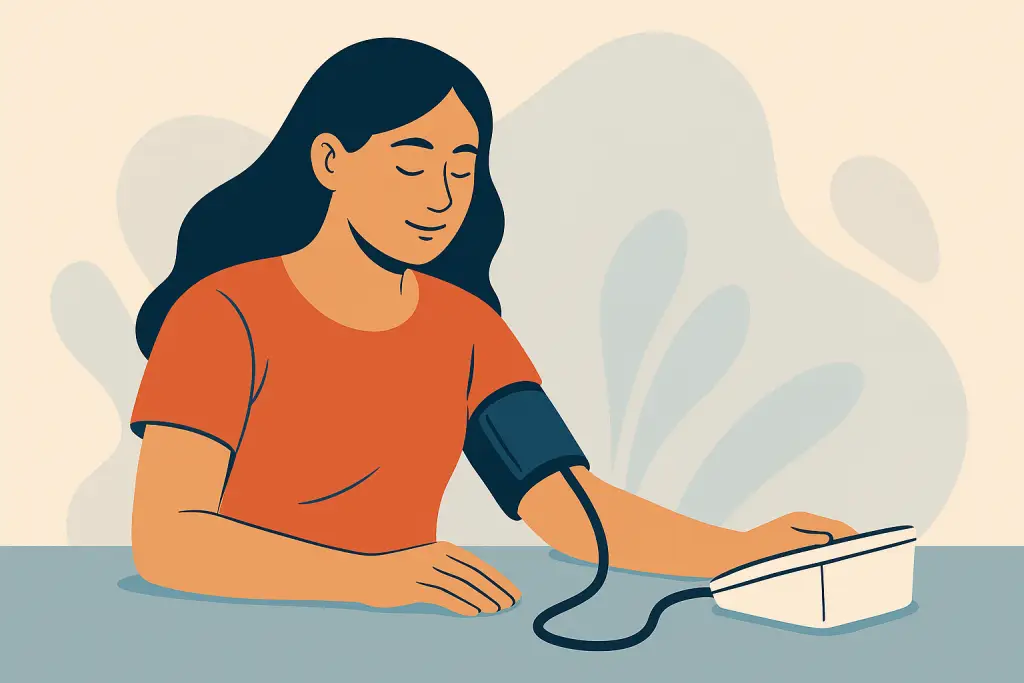How to Understand Blood Pressure: A Complete Guide
How to understand blood pressure is one of the most important health questions people ask, especially when it comes to preventing heart disease and stroke. Blood pressure readings give you valuable insight into how well your heart and arteries are working, making it essential to know what the numbers mean, how to measure them, and what lifestyle habits can keep them in a healthy range.
What Is Blood Pressure?
Blood pressure is the force of circulating blood pushing against the walls of your arteries. It is measured in millimeters of mercury (mmHg) and reported as two numbers: systolic and diastolic pressure.
- Systolic Pressure: The top number. It shows the pressure when your heart contracts and pumps blood into your arteries. A normal systolic reading is usually less than 120 mmHg.
- Diastolic Pressure: The bottom number. It reflects the pressure when your heart relaxes between beats. A normal diastolic reading is usually less than 80 mmHg.
Blood Pressure Categories Explained
If you want to know how to understand blood pressure properly, you need to learn the categories defined by healthcare professionals. These ranges help identify whether your blood pressure is normal or if you may be at risk of hypertension.
| Category | Systolic (mmHg) | Diastolic (mmHg) |
|---|---|---|
| Normal | Less than 120 | Less than 80 |
| Prehypertension | 120–139 | 80–89 |
| Stage 1 Hypertension | 140–159 | 90–99 |
| Stage 2 Hypertension | 160 or higher | 100 or higher |
Why It Matters
High blood pressure, also called hypertension, often has no obvious symptoms but can cause serious health issues such as heart attacks, strokes, kidney damage, and vision problems. That’s why it’s vital to monitor and interpret your readings regularly.
Tips on How to Understand Blood Pressure Readings
- Measure regularly: Keep track of your readings at home and during medical check-ups.
- Note the pattern: One high reading doesn’t always mean hypertension, but consistent results above normal are concerning.
- Consider lifestyle factors: Diet, exercise, stress, and sleep all influence blood pressure.
- Work with your doctor: Only a healthcare professional can confirm a diagnosis and recommend treatment.
How to Maintain Healthy Blood Pressure
Knowing how to understand blood pressure is only half the journey. Taking proactive steps to keep it within a healthy range is equally important:
- Eat a balanced diet rich in fruits, vegetables, and whole grains.
- Limit salt, processed foods, and added sugars.
- Stay active with at least 150 minutes of moderate exercise weekly.
- Manage stress through relaxation techniques like meditation or yoga.
- Avoid smoking and limit alcohol consumption.
Conclusion
Learning how to understand blood pressure empowers you to protect your cardiovascular health. By knowing the difference between systolic and diastolic pressure, recognizing the categories of blood pressure, and adopting healthy habits, you can reduce the risk of hypertension and its complications. Always consult your healthcare provider for guidance tailored to your personal health needs.
Frequently Asked Questions (FAQ)
How to understand blood pressure readings?
Blood pressure readings include two numbers: systolic (top) and diastolic (bottom). Normal blood pressure is typically below 120/80 mmHg. Consistently higher readings may indicate hypertension.
What is considered high blood pressure?
High blood pressure, or hypertension, is generally diagnosed when readings are 140/90 mmHg or above on multiple occasions. Stage 1 starts at 140/90 and stage 2 begins at 160/100 or higher.
How often should I check my blood pressure?
It’s recommended to check your blood pressure at least once a year if normal, and more frequently if you have risk factors or a history of hypertension.
Can lifestyle changes lower blood pressure?
Yes. Regular exercise, reducing salt intake, maintaining a healthy weight, and managing stress can significantly help lower blood pressure without medication.
Is cough medicine safe for people with high blood pressure?
Some cough medicine for high blood pressure may contain decongestants that raise blood pressure. Always choose products labeled safe for hypertension or consult your doctor before use.
credit: https://www.heart.org/en/health-topics/high-blood-pressure/understanding-blood-pressure-readings

